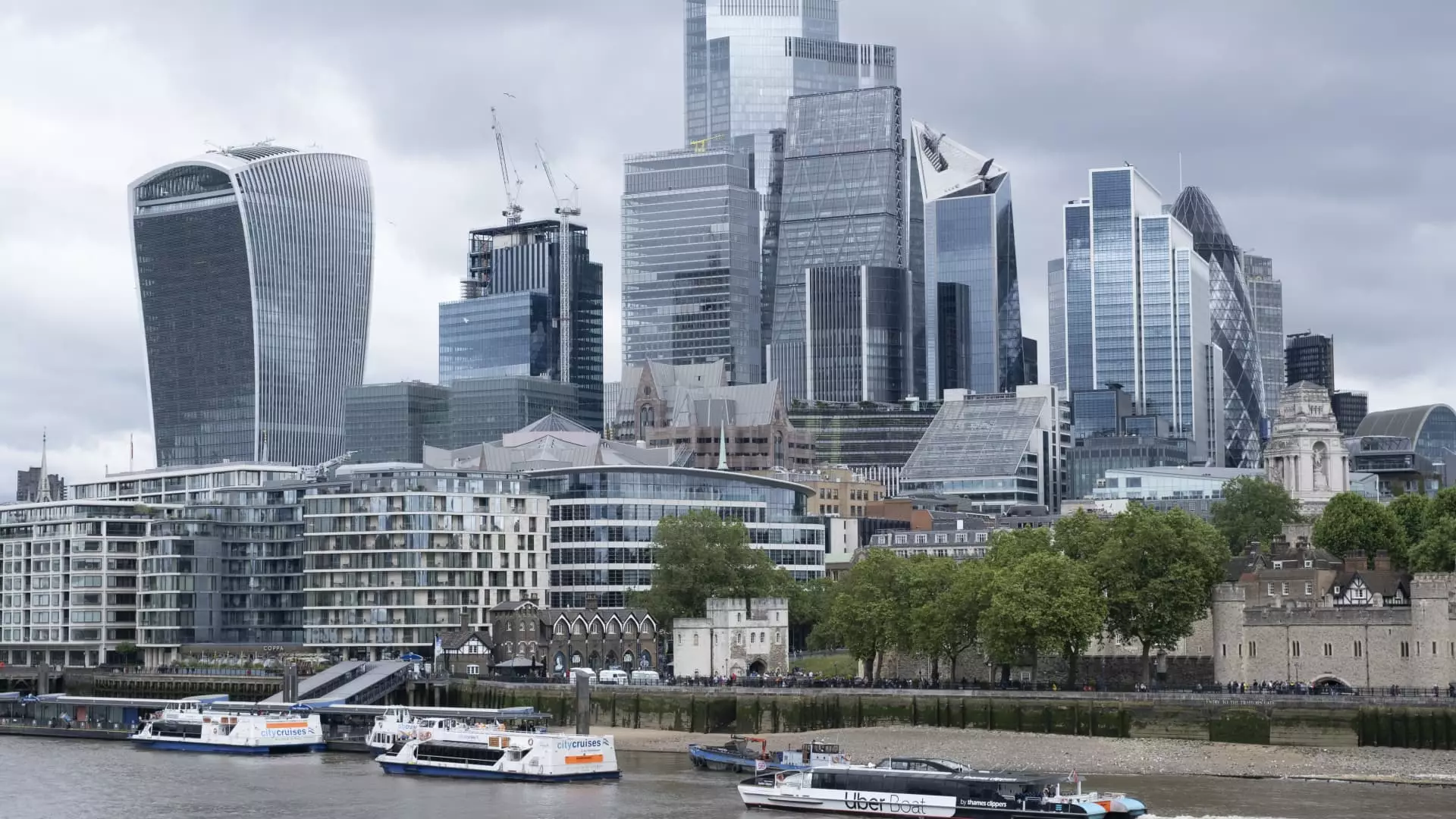In a significant development for the United Kingdom’s economy, the International Monetary Fund (IMF) has revised its growth forecast for 2024, projecting an increase to 1.1% from a previous estimate of 0.7%. This adjustment signals a shift in economic sentiment, primarily attributed to the anticipated declines in interest rates and inflation, expected to invigorate domestic consumption. The IMF’s optimism extends to the projected growth for 2025, remaining steady at 1.5%, showcasing a belief in the country’s resilience and potential for recovery.
The UK is experiencing a notable decrease in inflation rates, reported at 1.7% in September, a stark contrast to the alarming 11.1% recorded in October of the previous year. This decline, driven by reduced services inflation and a slowdown in wage growth, has prompted economists to forecast a more aggressive timeline for interest rate cuts by the Bank of England. Analysts predict the central bank will lower its key interest rate from 5.25% at the beginning of 2024 to approximately 4.5% by its conclusion. Such developments are critical in shaping economic dynamics, as lower borrowing costs typically stimulate consumer spending and investment.
Despite the IMF’s upgraded forecasts, it is essential to note that economic growth in the UK has been lethargic thus far. With growth rates stagnating at a mere 0.2% in August and flatlining in the preceding months, the country’s economic vigor remains under scrutiny. Concurrently, consumer confidence, although slightly uplifted as indicated by the S&P Global UK Consumer Sentiment Index, grapples with uncertainty stemming from the upcoming budget. Households maintain a cautious outlook, with some willingness to engage in significant expenditures, reflective of an underlying desire for economic stability.
As the Labour Party prepares to unveil its first budget in over a decade, the political ramifications cannot be overlooked. Prime Minister Keir Starmer has emphasized that this budget will necessitate “tough” decisions, particularly to address a purported £22 billion financing shortfall. Controversially, this figure faces skepticism from the Conservative Party, which challenges the necessity of drastic fiscal measures. Starmer’s commitment to reducing net borrowing while simultaneously avoiding increases in significant taxes such as income and corporate tax underscores a complex balancing act as the government seeks to promote growth without compromising fiscal responsibility.
The challenges extend beyond the UK, as the IMF has also revised its growth outlook for the eurozone down to 0.8%, forecasting stagnation in Germany’s economy. This bleak outlook is compounded by a series of challenges, including fierce competition within the automotive and manufacturing sectors, rising energy costs, and overall macroeconomic uncertainty. Such dynamics highlight the broader regional issues affecting economic stability, contrasting sharply with the IMF’s more positive projections for the US (2.8%), Canada (1.3%), and Japan (0.3%).
As the UK navigates a complicated economic landscape marked by fluctuating inflation, interest rate adjustments, and significant political developments, the IMF’s revised growth forecasts provide a sprightly annotation to the country’s financial narrative. While the path to improved growth appears clearer, ongoing challenges remain, demanding vigilance and strategic action from policymakers. The intertwining of economic indicators and political initiatives will ultimately chart the course for the UK economy in the coming years, as the nation strives to emerge from the shadows of stagflation into a brighter economic future.



Leave a Reply